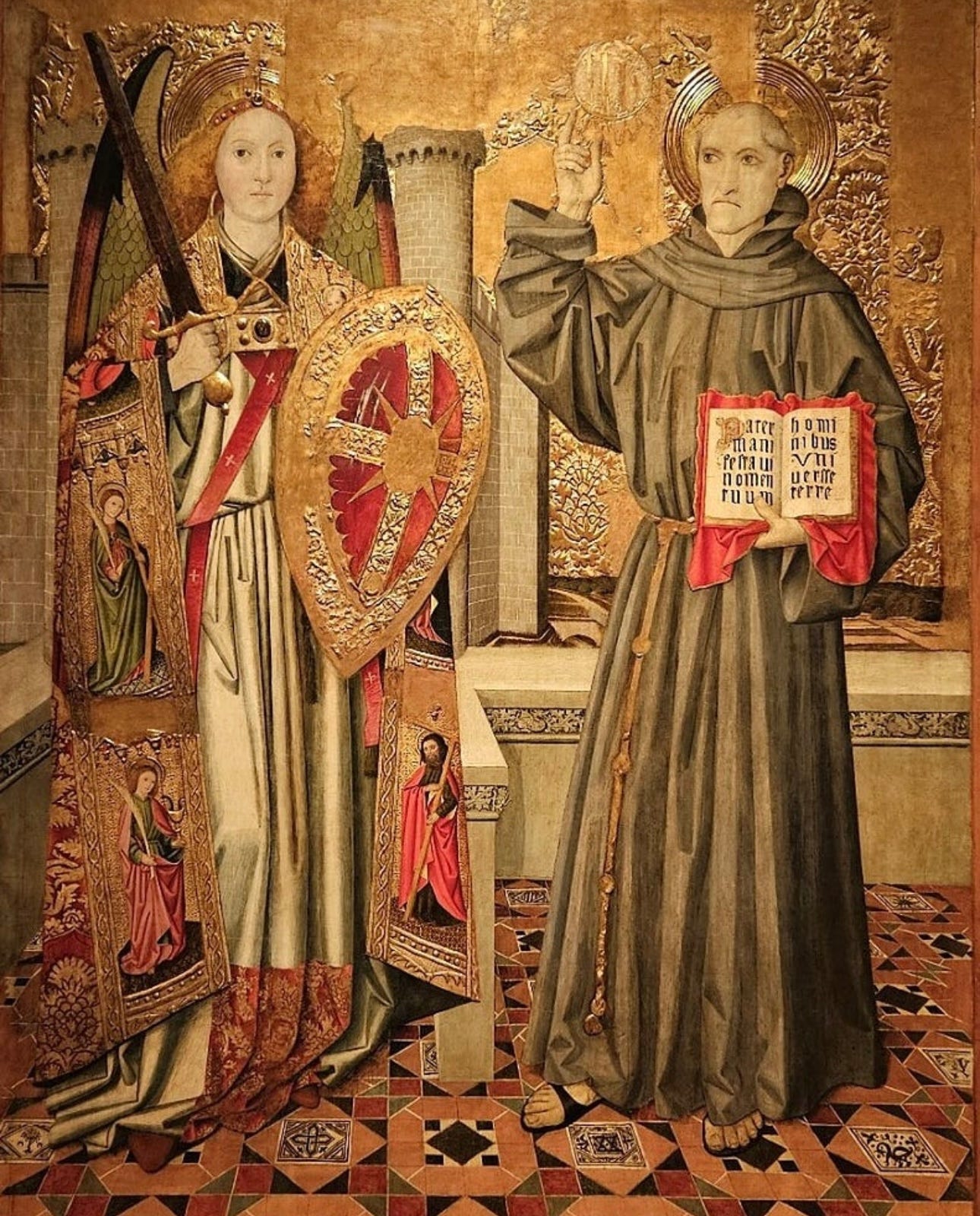THE GUARDIAN ANGELS
Guardian angels lead the individual towards Heaven by defending him from evil, helping him in prayer, suggesting virtuous deeds, but acting upon the senses and imagination, not directly on the will
Angels (ἄγγελος, messenger) are pure spirits, persons but bodiless, created by God with more acute intelligence and greater power than have human beings. Their office is to praise God, to be His messengers and to watch over man.
Guardian angels lead the individual towards Heaven by defending him from evil, helping him in prayer, suggesting virtuous deeds, but acting upon the senses and imagination, not directly on the will, so that our co-operation is required. The psalmist assures us, “He hath given His angels charge over thee, to keep thee in all thy ways”. And in another place, “The angel of the Lord shall encamp round about them that fear Him, and shall deliver them”. The patriarch Jacob prayed his good angel to bless his two grandsons, Ephraim and Manasses, “The angel that delivereth me from all evils, bless these boys”.
Judith said, “His angel hath been my keeper, both going hence, and abiding there, and returning from thence hither”. Christ deters us from scandalizing any of His little ones, because their angels always behold the face of God, and they will demand punishment of God against any by whose malice those who are their wards suffer harm. So certain and general was the belief of a guardian angel being assigned to every one by God, that when St Peter was miraculously delivered out of prison the disciples could not at first believe it, and said, “It is his angel”.
From early times liturgical honour was paid to all angels in the office of the dedication of the church of St Michael the Archangel in Via Salaria on September 29, and in the oldest extant Roman sacramentary, called Leonine, the prayers for the feast make indirect reference to them as individual guardians. A votive Mass, Missa ad suffragia angelorum postulanda, has been in use at least from the time of Alcuin—he died in 804—who refers to the subject twice in his letters. Whether the practice of celebrating such a Mass originated in England is not clear, but we find Alcuin’s text in the Leofric Missal of the early tenth century. This votive Mass of the Angels was commonly allotted to the second day of the week (Monday), as for example in the Westminster Missal, written about the year 1375.
In Spain it became customary to honour the Guardian Angels not only of persons, but of cities and provinces. An office of this sort was composed for Valencia in 1411. Outside of Spain, Francis of Estaing, Bishop of Rodez, obtained from Pope Leo X a bull in 1518 which approved a special office for an annual commemoration of the Guardian Angels on March 1. In England also there seems to have been much devotion to them. Herbert Losinga, Bishop of Norwich, who died in 1119, speaks eloquently on the subject; and the well-known invocation beginning Angele Dei qui custos es mei is apparently traceable to the verse-writer Reginald of Canterbury, at about the same period.
Pope Paul V authorized a special Mass and Office and at the request of Ferdinand II of Austria granted the feast to the whole empire. Pope Clement X extended it to the Western church at large as of obligation in 1670 and fixed it for the present date, being the first free day after the feast of St Michael.
From Butler’s Lives of the Saints





Carl not Cark lol
Thank you so much for this piece. Extremely helpful.
Thank you for everything you do.
Much love
Cark & Mum (...in The Mumbles)